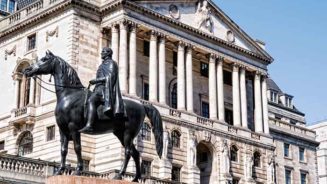The UK chancellor Rachel Reeves has been warned that reducing the 40% tax relief for higher earners would disproportionately hit public sector workers of relatively modest incomes, according to a report in The Times yesterday.
But there is still speculation that Reeves (pictured) may either reduce the tax-free cash limit or making pensions subject to inheritance tax. There has also been speculation that Reeves could levy national insurance on employer pension contributions.
In reaction to this new report, Hargreaves Lansdown head of retirement analysis Helen Morrissey said: “A flat rate of pension tax relief is off the table, according to recent speculation. This follows concerns about the impact it would have on public sector workers, but will no doubt be greeted with a sigh of relief by public and private sector workers alike.
“This has not been officially confirmed, but the introduction of a flat rate of relief would have been highly complex, expensive and brought further confusion to an already tangled system.”
She said other options remain on the table – most notably reducing the amount of tax-free cash people can take from their pension. “The lump sum allowance was set at £268,275 by the last Government when they removed the lifetime allowance. This meant that if people built up pensions over and above that previous allowance they would not have access to the generous 25% tax free lump sum on monies over the allowance. Any move to restrict it further will be unpopular with those planning their retirement with higher levels of saving.”
She added that the constant moving of the boundaries, particularly so soon after the lifetime allowance risking making forward planning more difficult for both savers and advisers.
“What we really need is clarity for those with pensions below this limit. This ongoing speculation about changes to tax-free cash is damaging.
“The Chancellor has recognised that businesses need certainty in the taxation environment to make investment decisions. The same is true of our personal finances. The government have left people to make impossible decisions about their investments and pensions. The sooner changes such as raiding tax-free cash, can be ruled out, the more people can focus on the long term again.”
Among other comments from around the industry, Tom McPhail, director of public affairs at the lang cat said: “It’s not surprising to see the Government has had a rethink on cutting income tax relief on pension contributions. It would have broken an election pledge (to not increase income tax); it would have been fiendishly complicated to do and it would have upset millions of public sector workers. More likely now, is that they’ll introduce some form of death tax on unused pension funds (unless passing to a spouse) and perhaps a cut to employers’ relief on National Insurance contributions.”





